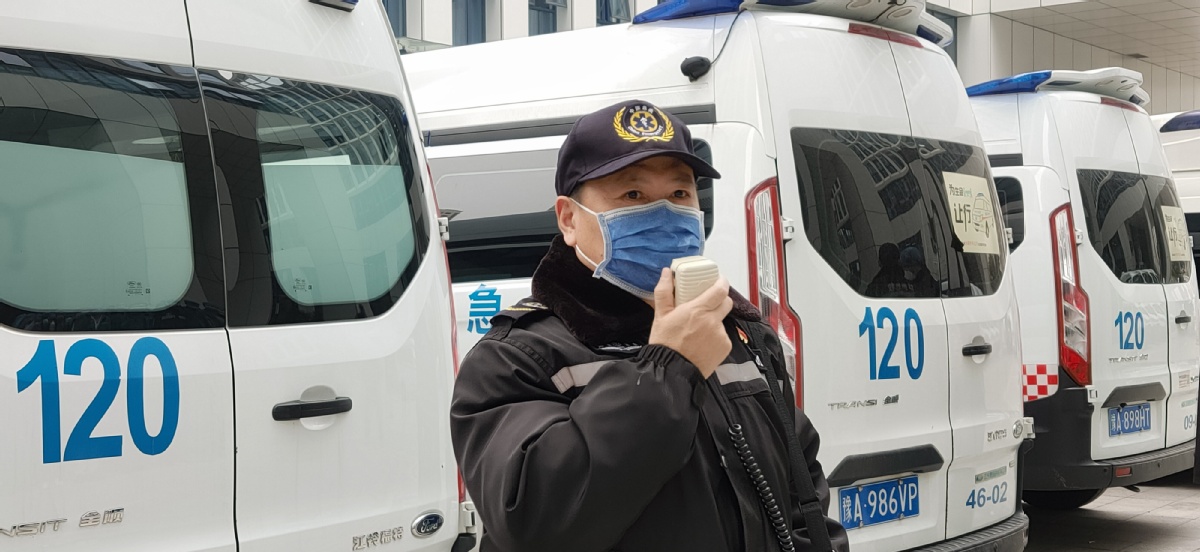Team raced to transfer patients during epidemic


Qiao had encountered similar difficulties during other medical assistance missions in his two decades of working in first aid.
"Nine of the 81 team members, including me, had also participated in rescue work for the Wenchuan earthquake in 2008," he said. "But in Wuhan, the danger was usually invisible. Every detail had to be meticulously thought out, and no slack was allowed."
Qiao said in Wuhan, they were "racing against the clock" and "walking on a tightrope" at the same time.
"Often, we had to come into very close contact with a patient who might be infected with the virus, holding their hands or carrying them on our shoulders," he said.
Even though the entire team had undergone training on preventing infections, Qiao remained deeply vigilant about safety and insisted on personally checking whether responders who were being called out for a task were wearing their protective equipment properly.
"We were dealing with uncertainties on a daily basis," he said."Unlike nurses and doctors who were mostly stationed at hospitals, we were shuttling between quarantine facilities in communities, elderly homes, mental health clinics and regular hospitals. We might run into an 80-year-old patient and then come across one who needed to be hooked up to a respirator immediately.
"The circumstances in Wuhan were unprecedented. Maintaining an ironclad policy of ensuring medical safety was meant to protect the patients as well as fellow medical workers."
In an emergency response mission on Feb 10, the local command center called for the immediate transfer of over 100 patients to Huoshenshan Hospital, one of the two makeshift hospitals built to receive COVID-19 patients, at about 6 pm.
"Within a few minutes, all personnel answered the call and got ready in head-to-toe protective clothing. Some had put on diapers," Qiao said.
"The mission was completed at about 3 am the next morning. Their clothing was completely soaked in sweat and their goggles fogged up. My heart ached for them, but at the same time, I was so proud of my team and my soldiers."
Team members transferred over 2,500 people to designated facilities during their 45 days in Wuhan, Qiao said, helping to ease the pressure on local first aid workers at the height of the outbreak.
- Yuyuan Garden lights up with Year of the Snake lantern installations
- New dendrobium orchid species found in Sichuan
- People welcome the New Year across China
- China's railway trips expected to hit 11.5 million on New Year's Day
- Beijing: where ancient traditions meet modern marvels
- Beijing-Tianjin-Hebei 2025 celebrations shine at Zhengding county





































